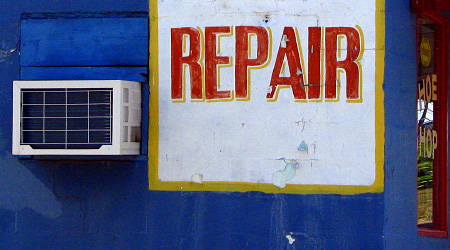5 Simple Steps To Start Credit Repair On Your Own

Good credit is required for almost anything a consumer wants to do from purchasing a car, renting an apartment or applying for a job. Sometimes through no fault of their own an individual loses a job or has a medical emergency resulting in missed bill payments and ever-increasing amounts of debt. A large number consumers don't have good credit and need to take steps to get back on track financially. Below are five simple steps to start credit repair on your own.
Obtain Credit Report
Federal law requires each of the three major credit reporting bureaus to provide one free credit report to each consumer every 12 months. You can get your free credit report by contacting Experian, Equifax, TransUnion directly or by going to www.annualcreditreport.com. For an additional fee it may also be prudent to obtain your FICO score at the same time since since it is referred to when evaluating credit worthiness and determining interest rates on loans and credit cards.
Analyze The Data
Once you have your free credit report, analyze it thoroughly and determine where your weaknesses are to focus your resources on improving your credit. Do you have a significant number of missed or late payments? Are all your credit cards currently maxed out? Do you have too many open lines of credit which could be a potential default risk? Your reasons for bad credit may be different from another persons requiring different measures be taken.
Create A Plan
Depending on why you have bad credit you may need to do something as simple as make payments on time or you may require more drastic steps. Excessive debt will often require the use of debt consolidation tools like balance transfers and home equity lines of credit. If neither of those are available you can still negotiate lower payments and interest rates directly with creditors if you are proactive. A final option is to use nonprofit nationally recognized credit counseling services to work on your behalf when repairing your credit.
Manage Finances
Eliminating debt is only part of the solution when repairing credit on your own. The other half of the equation is eliminating wasteful spending while increasing revenue. Cutting out frivolous expenditures like morning coffees and cable TV can help save hundreds of dollars per month. A budget can help identify what you have to pay and what you can cut by listing all expenses and then prioritizing each one accordingly. Asking for a raise or getting a part-time job can also help eliminate debt faster which will speed up the credit repair process.
Stay Focused
Starting credit repair on your own is much like starting a diet in that diets don't work and should never be started in the first place. As any nutritionist will tell you, losing weight isn't about dieting but instead altering behavior and making different lifestyle choices long term. Starting credit repair on your own will require dedicated focus and behavior modification. Excessive debt and bad credit normally doesn't happen overnight. They are often a result of poor decision-making and bad judgment by living beyond your means and not assuming personal responsibility. If you stay focused on eliminating debt, closing extra credit cards, building an emergency fund, making payments on time and generally being financially responsible then you will be successful in repairing your credit over the long run.







